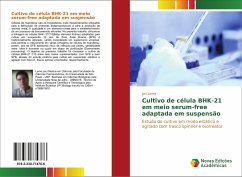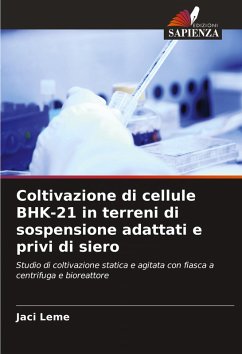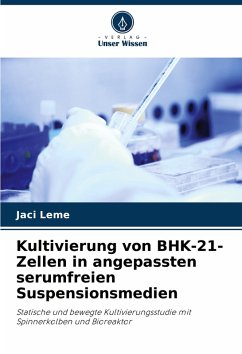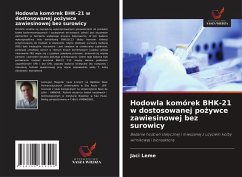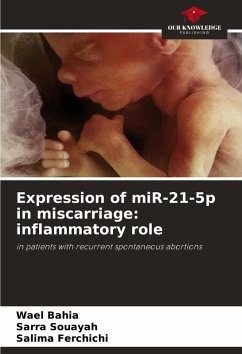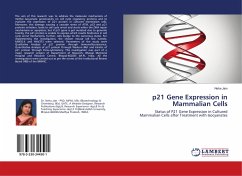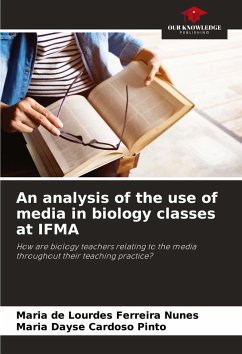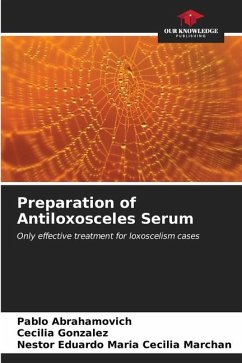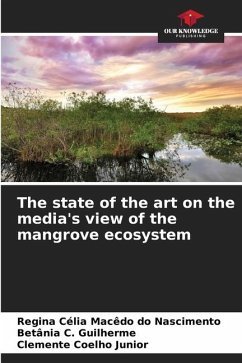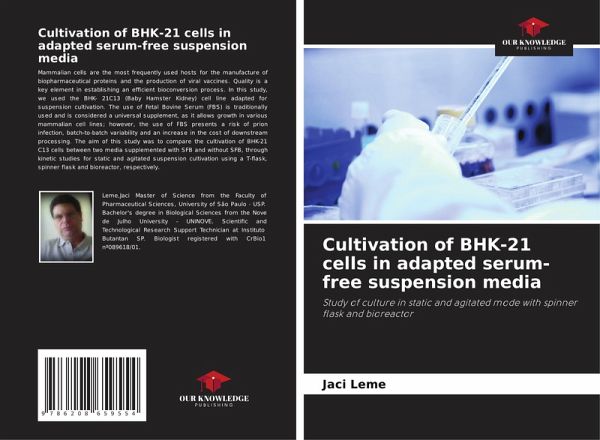
Cultivation of BHK-21 cells in adapted serum-free suspension media
Study of culture in static and agitated mode with spinner flask and bioreactor
Versandkostenfrei!
Versandfertig in 6-10 Tagen
24,99 €
inkl. MwSt.

PAYBACK Punkte
12 °P sammeln!
Mammalian cells are the most frequently used hosts for the manufacture of biopharmaceutical proteins and the production of viral vaccines. Quality is a key element in establishing an efficient bioconversion process. In this study, we used the BHK- 21C13 (Baby Hamster Kidney) cell line adapted for suspension cultivation. The use of Fetal Bovine Serum (FBS) is traditionally used and is considered a universal supplement, as it allows growth in various mammalian cell lines; however, the use of FBS presents a risk of prion infection, batch-to-batch variability and an increase in the cost of downstr...
Mammalian cells are the most frequently used hosts for the manufacture of biopharmaceutical proteins and the production of viral vaccines. Quality is a key element in establishing an efficient bioconversion process. In this study, we used the BHK- 21C13 (Baby Hamster Kidney) cell line adapted for suspension cultivation. The use of Fetal Bovine Serum (FBS) is traditionally used and is considered a universal supplement, as it allows growth in various mammalian cell lines; however, the use of FBS presents a risk of prion infection, batch-to-batch variability and an increase in the cost of downstream processing. The aim of this study was to compare the cultivation of BHK-21 C13 cells between two media supplemented with SFB and without SFB, through kinetic studies for static and agitated suspension cultivation using a T-flask, spinner flask and bioreactor, respectively.



